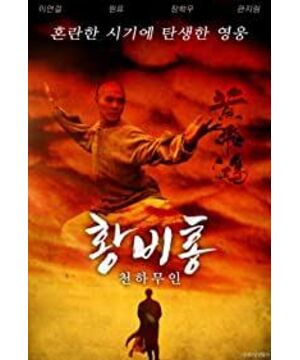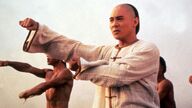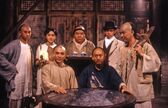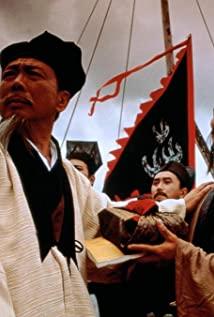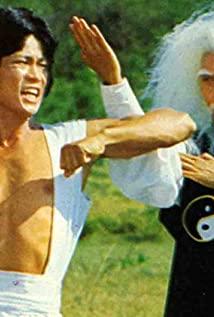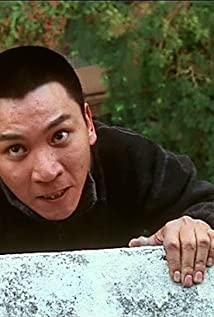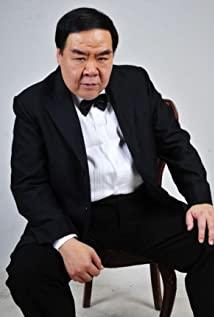"Once Upon a Time in Top Gun" in 1991 was the first time that Tsui Hark won the Best Director Award at the Academy Awards, and he was also the main screenwriter. This film should be regarded as a complete Tsui Hark work, showing him the beginning of a generation. First of all, it is good at the style and style of new wine in old bottles. Compared with the previous Hong Kong kung fu films of the late Qing Dynasty and the early Republic of China, the layout is vast, everything is updated, and there are many characters, especially the peculiar scene of Huayang gathering in that special era.
Of course, I am writing this review, which is nearly thirty years late, not to simply praise or criticize, thank you or apologize (although late apologies seem to be very popular these days), but to point out the core problems of the film's play, and also Because of the special status of "Huang" in the Hong Kong film industry and the history of kung fu films, I hope that the revelation and possible solution of this problem will give some inspiration to future films of the same type, especially kung fu film plays, although there may be different Few people still think that kung fu and action movies do not need a full script, and even if they do, it is just to cope with censorship. This idea is extremely shallow and outdated.
There are many characters in "Once Upon a Time", covering all aspects of Huayang's different factions, plus Master Huang's apprentices, they are all in one place. At the same time, in order to distinguish it from ordinary kung fu films that simply fight foreign devils, Director Tsui Hark seems to have arranged a good person and a bad person for Hua Yang. The priest is good, but the British and American people and human traffickers are bad. Okay, but the Shahe Gang are bad people, and there are good and bad ones, that is, the Admiral and Yan Zhendong, and there are also those who have studied Chinese and Western, the Thirteenth Aunt and Yachasu...
Each character has obvious labels, and there were enough or even excessive dramatic conflicts, but unfortunately, in the first half of "Once Upon a Time", the point of conflict was that the Shahe Gang crossed the border and collected protection fees. Fortunately, they did not continue to show them. The scene of fighting with the local gang, and the second half became Yan Zhendong challenging Huang Feihong. In terms of martial arts, it doesn't matter whether it is right or wrong, but if it is about literary drama or various metaphors, it is quite a problem.
The troupe boss shut Liang Kuan, who had collected the tickets, and let him face the Shahe Gang, who was collecting protection fees, and beat him all the way to Lin Shirong's butcher's shop. The western restaurant made Huang Feihong, the admiral and the foreigners, who were negotiating for the Huayang dispute, also involved in the fight. Master Huang also used his classic persuasion method to persuade and persuade but failed... The serial fights of changing the bar and continuing the stalls have entangled all the characters, but the core event is to collect protection fees, which is a bit of a waste of these scene actors and action designs.
What I mean is that since what is to be presented is the collision of multiculturalism and customs, the conflict should really be based on the values themselves, rather than the "low taste" of collecting protection fees. For example, because the admiral was there during the fight, the militia group was detained by the yamen, and then the Shahe Gang arson case occurred, and the priest was an eyewitness. It's complicated. If we use a little space to show different trial procedures in China and the West, for example, we can also design to understand some legal knowledge. This is the scene where the values really collide. Not just let the priest say that he will testify and come out behind to block the bullet. This kind of scene where the yamen turns into a court cannot slow down the rhythm of the story. If there is a fight, the yamen can also make a big fight, and the gavel can also fight the gavel.
Yan Zhendong is the ultimate sparring with Huang Feihong at the end of the film, but he appeared a long time after the opening, first performing juggling, then challenging the gym, and at the same time getting used to picking up money on the ground. Of course, this character refers to the vast majority of numb Chinese people. In order to survive, they will do whatever it takes to become famous, but their nature is not bad and their conscience is not destroyed, but they are easily deceived. Although Yan Zhendong was hooked up with Huang Feihong because of Liang Kuan's later apprenticeship, in general, he was still a very abrupt and functional role. The director may sometimes forget that the biggest drama event of this film is actually the Jinshan piggy fraud case, but the main characters in the play, except Liang Kuan went to the comprador's office for consultation, and then Thirteen Aunt was kidnapped and sold, there is no more The plot takes care of this central event, and the truth is revealed by a guy who suddenly appeared and escaped from Jinshan, which can be said to be scribbled anyway.
Liang Kuan or Ya Zha Su Ke was the first group to go to Jinshan before, and then tried to escape back, but they were hunted and killed all the way, so he could not tell the truth, so as not to affect the foreigner's pig business. Of course, it could also be that Aunt Thirteen heard about it, or learned relevant secrets through telegrams. She went to the newspaper office to publish news to expose Jinshan’s secrets, and she was also hunted down. At first, Huang Feihong was dubious about it... Even Yan Zhendong himself It should also be hoped to rely on gold rush to turn around when there is no way out, but after believing it, Huang Feihong persuaded the government to stop the piggy scam. At first, of course, the foreigners resisted and resisted, but in the end, in the face of witnesses and evidence including priests, the foreigners could only temporarily accept it. hand. Yan Zhendong had already signed up, but he could not go to Jinshan. He learned from the foreigners that Huang Feihong was in the middle, and he also framed the head coach of the militia group for wanting to collude with the government and monopolize the business of Chinese people going to Jinshan to pan for gold. Yan Zhendong always hated this kind of Chinese who oppressed his own people, so he went to Baozhilin's theory and challenge. Before the two had yet to decide the winner, it was rumored that there were apprentices in the Shahe Gang. They went to Jinshan before, but now they have returned home dressed in gold and silver, with golden teeth, and they even donated money to help build bridges and roads in Foshan. This is the best and most practical advertisement. It is much more effective than the oral evidence theory. A large number of people started signing contracts to go to Jinshan. Yan Zhendong was appreciated by foreigners because of his previous challenges to Huang Feihong, and he also did similar work as a comprador. In the process, he also realized that there was deceit, but at this time, as long as he was not deceived and had food and drink, he would not care about other compatriots. Next, Huang Feihong and others will not be able to fight head-on. It is unrealistic to rely only on fists and kicks. Instead, they can only use the contradiction between foreigners, that is, the feud between Britain and the United States, to provoke the relationship between the two, and finally let the British businessman come forward to accuse The Americans did not hesitate to treat the Chinese like slaves for the sake of gold rush. The Chinese on the ship began to resist. At this time, Yan Zhendong was transformed from a surviving martial arts practitioner into a delicate egoist under the foreigners, so Huang Before Feihong can fight the foreigners to save his compatriots, he must first defeat this iron cloth shirt minion.
View more about Once Upon a Time in China reviews


